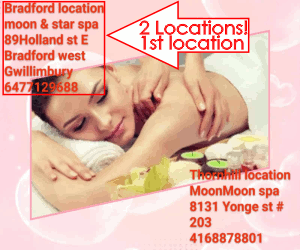(CNN) — Will a deep tissue massage really reduce aches and pains? Will a sauna clear up my cold? And will a foot reflexology session have a long-lasting effect on my overall health?
All common questions about various well-known spa modalities, but what are the scientifically based answers?
It provides an easy way for people to check out the laboratory-based research that has been done to date on spa treatments.
The truth is out there
Bath's Thermae Bath Spa is Britain's only natural thermal spa -- and purported to be good for wellness.
"We do not need to wait for the research to happen. We need to aggregate the research that already exists and broadcast it," says Dr Pelletier, an integrative health expert, university professor and one of the people behind the Wellness Evidence website.
The website is sponsored by various companies involved in the spa industry, such as Fairmont Raffles Hotels International, Murad, Red Door Spas, ResortSuite, SpaFinder, Inc., SpaSoft, Westin Hotels and Resorts Worldwide, and Yelo Spa.
There are more than 640 recognized complementary and alternative medicine modalities, but up till now clinical studies have been lodged in a number of databases not easily accessible to the average spa-goer.
Western medicine isn't perfect either
Is it just about relaxation, or are there genuine health benefits?
"People assume that the clinical evidence always sides with conventional Western medicine, but the 'gold standard' for medical research, the Cochrane Reviews, indicates that only 30-35% of conventional medicine is adequately evidence-based," says Dr Pelletier.
Evidence Tables compress the research: As and Bs indicate strong evidence for benefits, C and Ds suggest that studies were inadequate or haven't shown a clear benefit yet.
Acupuncture for instance is good for osteoarthritis, chronic pain and post-operative pain (As) but not a confirmed benefit for hearing loss or to help you quit smoking (Ds).
So, back to the original questions -- will a massage de-stress me? Does a sauna banish a cold? And is foot reflexology really an effective health boost?
According to the Wellness Evidence website:
Massage
Sauna
Foot reflexology
Other treatments researched by the site include acupressure, acupuncture, ayurveda, meditation, reiki, tai chi and yoga.
Some 21 modalities are covered by the website currently, but this will increase to 40 by the end of the year.
"Some of the medical evidence for spa and wellness approaches is powerful, some is inconclusive, some is negative, and certainly far more studies need to be undertaken. But the site's philosophy is that unflinching transparency is the true path to industry legitimacy and growth," says Susie Ellis, GSS and Spa Finder co-founder.
Catharine Nicol was the editor of AsiaSpa magazine for nine years and now judges Spafinder Wellness 265 Global Wellness Travel Awards.
Editor's note: This article was previously published in 2011. It was reformatted and republished in 2017.
Let's block ads! (Why?)
All common questions about various well-known spa modalities, but what are the scientifically based answers?
It provides an easy way for people to check out the laboratory-based research that has been done to date on spa treatments.
The truth is out there
Bath's Thermae Bath Spa is Britain's only natural thermal spa -- and purported to be good for wellness.
"We do not need to wait for the research to happen. We need to aggregate the research that already exists and broadcast it," says Dr Pelletier, an integrative health expert, university professor and one of the people behind the Wellness Evidence website.
The website is sponsored by various companies involved in the spa industry, such as Fairmont Raffles Hotels International, Murad, Red Door Spas, ResortSuite, SpaFinder, Inc., SpaSoft, Westin Hotels and Resorts Worldwide, and Yelo Spa.
There are more than 640 recognized complementary and alternative medicine modalities, but up till now clinical studies have been lodged in a number of databases not easily accessible to the average spa-goer.
Western medicine isn't perfect either
Is it just about relaxation, or are there genuine health benefits?
"People assume that the clinical evidence always sides with conventional Western medicine, but the 'gold standard' for medical research, the Cochrane Reviews, indicates that only 30-35% of conventional medicine is adequately evidence-based," says Dr Pelletier.
Evidence Tables compress the research: As and Bs indicate strong evidence for benefits, C and Ds suggest that studies were inadequate or haven't shown a clear benefit yet.
Acupuncture for instance is good for osteoarthritis, chronic pain and post-operative pain (As) but not a confirmed benefit for hearing loss or to help you quit smoking (Ds).
So, back to the original questions -- will a massage de-stress me? Does a sauna banish a cold? And is foot reflexology really an effective health boost?
According to the Wellness Evidence website:
Massage
- A Cedars-Sinai Medical Centre study reveals a single 45-minute Swedish massage decreases cortisol levels and increases the immune system's white blood cells.
- The University of Miami compared light and moderate pressure massage, and found that only moderate/stronger pressure enhances growth/development in infants and reduces stress in adults.
- The University of Auckland, NZ, study found massage decreased migraine frequencies, improves sleep quality and induced heart rate and cortisol decreases for migraine patients.
- The University of Goteborg, Sweden, found massage reduces nausea in women with breast cancer undergoing chemotherapy.
Sauna
- The Charite University Medical Centre, Germany, found sauna does not have any significant impact on cold symptoms.
- The University School of Physical Education, Krakow, found two weeks of sauna sessions can change cholesterol and LDLC concentration, increasing HDLC concentration.
- The University of Otago, NZ, showed three weeks of post-exercise sauna bathing enhanced endurance running performance.
- The University of Toyoma, Japan, shows repeated sauna therapy could serve as a non-invasive therapy for patients with myocardial infarction.
Foot reflexology
- The California Graduate Institute, US, trial showed foot reflexology reduced premenstrual symptoms.
- The Inje University, Korea, showed foot reflexology reduces depression and stress, and strengthens the immune system in middle-aged women.
- The Kangwon National University, Korea, found it reduced stress and fatigue in female undergrad students.
- A Taiwanese hospital found foot reflexology improves sleep quality of postpartum women.
Other treatments researched by the site include acupressure, acupuncture, ayurveda, meditation, reiki, tai chi and yoga.
Some 21 modalities are covered by the website currently, but this will increase to 40 by the end of the year.
"Some of the medical evidence for spa and wellness approaches is powerful, some is inconclusive, some is negative, and certainly far more studies need to be undertaken. But the site's philosophy is that unflinching transparency is the true path to industry legitimacy and growth," says Susie Ellis, GSS and Spa Finder co-founder.
Catharine Nicol was the editor of AsiaSpa magazine for nine years and now judges Spafinder Wellness 265 Global Wellness Travel Awards.
Editor's note: This article was previously published in 2011. It was reformatted and republished in 2017.
Let's block ads! (Why?)

























































































